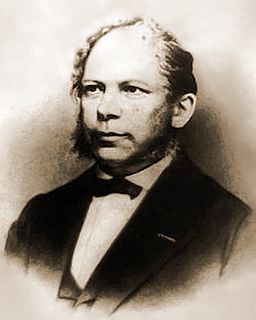
Lobegott Friedrich Constantin (von) Tischendorf was a world-leading biblical scholar in his time. In 1844 he discovered the world's oldest and most complete Bible dating from 325, with the complete New Testament not discovered before. This Bible is called Codex Sinaiticus, after the St. Catherine's Monastery at Mt. Sinai, where Tischendorf discovered it. The codex can be seen either in the British Library in London, or as a digitalised version on the Internet. Textual disputes are resolved when the two oldest books, Codex Sinaiticus and Codex Vaticanus, agree with each other. Tischendorf was made an Honorary Doctor by Oxford University on 16 March 1865, and an Honorary Doctor by Cambridge University on 9 March 1865 following this find of the century. While a student gaining his academic degree in the 1840s, he earned international recognition when he deciphered the Codex Ephraemi Rescriptus, a 5th-century Greek manuscript of the New Testament.
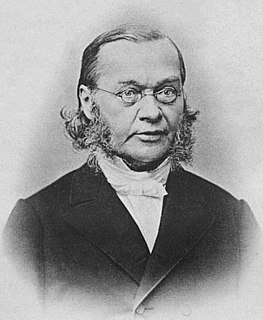
Ernst Wilhelm Theodor Herrmann Hengstenberg, was a German Lutheran churchman and neo-Lutheran theologian from an old and important Dortmund family.
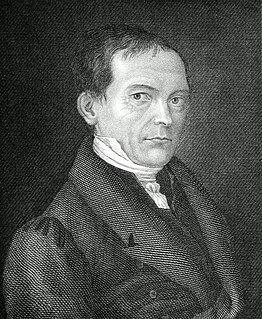
Wilhelm Martin Leberecht de Wette, was a German theologian and biblical scholar.
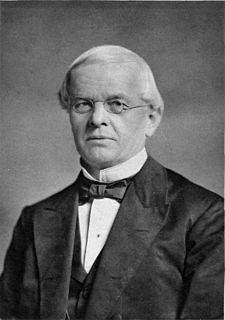
Christian Friedrich August Dillmann was a German orientalist and biblical scholar.

Karl Viktor Müllenhoff was a German philologist and a student of Germanic antiquities.
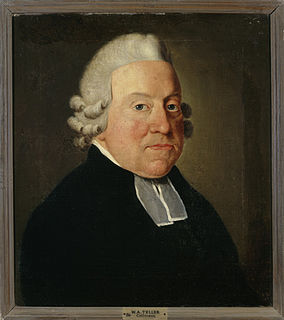
Wilhelm Abraham Teller was a German Protestant theologian who championed a rational approach to Christianity.

Novum Testamentum Graece is a critical edition of the New Testament in its original Koine Greek, forming the basis of most modern Bible translations and biblical criticism. It is also known as the Nestle-Aland edition after its most influential editors, Eberhard Nestle and Kurt Aland. The text, edited by the Institute for New Testament Textual Research, is currently in its 28th edition, abbreviated NA28.

Friedrich Wilhelm Carl/Karl Umbreit was a German Protestant theologian and a Hebrew Bible scholar.
Oscar Leopold von Gebhardt was a German Lutheran theologian, born in the Baltic German settlement of Wesenberg in the Russian Empire.

Kurt Aland, was a German theologian and biblical scholar who specialized in New Testament textual criticism. He founded the Institut für neutestamentliche Textforschung in Münster and served as its first director from 1959–83. He was one of the principal editors of Nestle-Aland – Novum Testamentum Graece for the Deutsche Bibelgesellschaft and The Greek New Testament for the United Bible Societies.

Caspar René Gregory was an American-born German theologian.
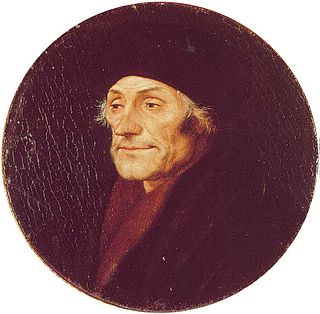
Novum Instrumentum omne was the first published New Testament in Greek (1516). It was prepared by Desiderius Erasmus (1469–1536) and printed by Johann Froben (1460–1527) of Basel. Although the first printed Greek New Testament was the Complutensian Polyglot (1514), it was the second to be published (1522). Erasmus used several Greek manuscripts housed in Basel, but some verses in Revelation he translated from the Latin Vulgate.
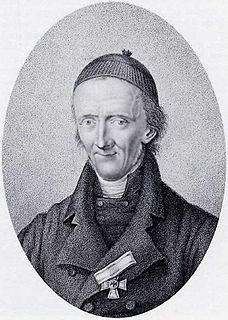
Georg Christian Knapp was a German Protestant theologian.

Johann Martin Augustin Scholz was a German Roman Catholic orientalist, biblical scholar and academic theologian. He was a professor at the University of Bonn and travelled extensively throughout Europe and the Near East in order to locate manuscripts of the New Testament.
Ernst Friedrich Karl Rosenmüller was a German Orientalist and Protestant theologian.

Barbara Aland, née Ehlers is a German theologian and was a Professor of New Testament Research and Church History at Westphalian Wilhelms-University of Münster until 2002.
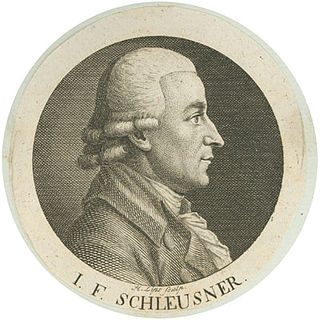
Johann Friedrich Schleusner was a German Protestant theologian. He was considered one of the more prominent German theological scholars of his time.
Gustav Hartenstein was a German philosopher and author. He was one of the most gifted followers of Johann Friedrich Herbart.
Ernst Constantin Ranke was a German Protestant theologian; since 1850, a professor of church history. He was the brother of historian Leopold von Ranke (1795–1886), theologian Friedrich Heinrich Ranke (1798–1876) and philologist Karl Ferdinand Ranke (1802–1876).
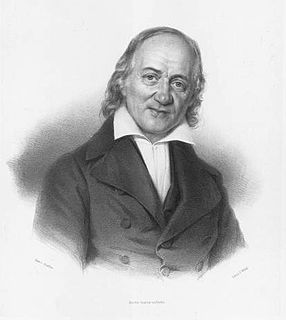
Gottfried Wilhelm Fink was a German composer, music theorist, poet, and a Protestant clergyman.




















